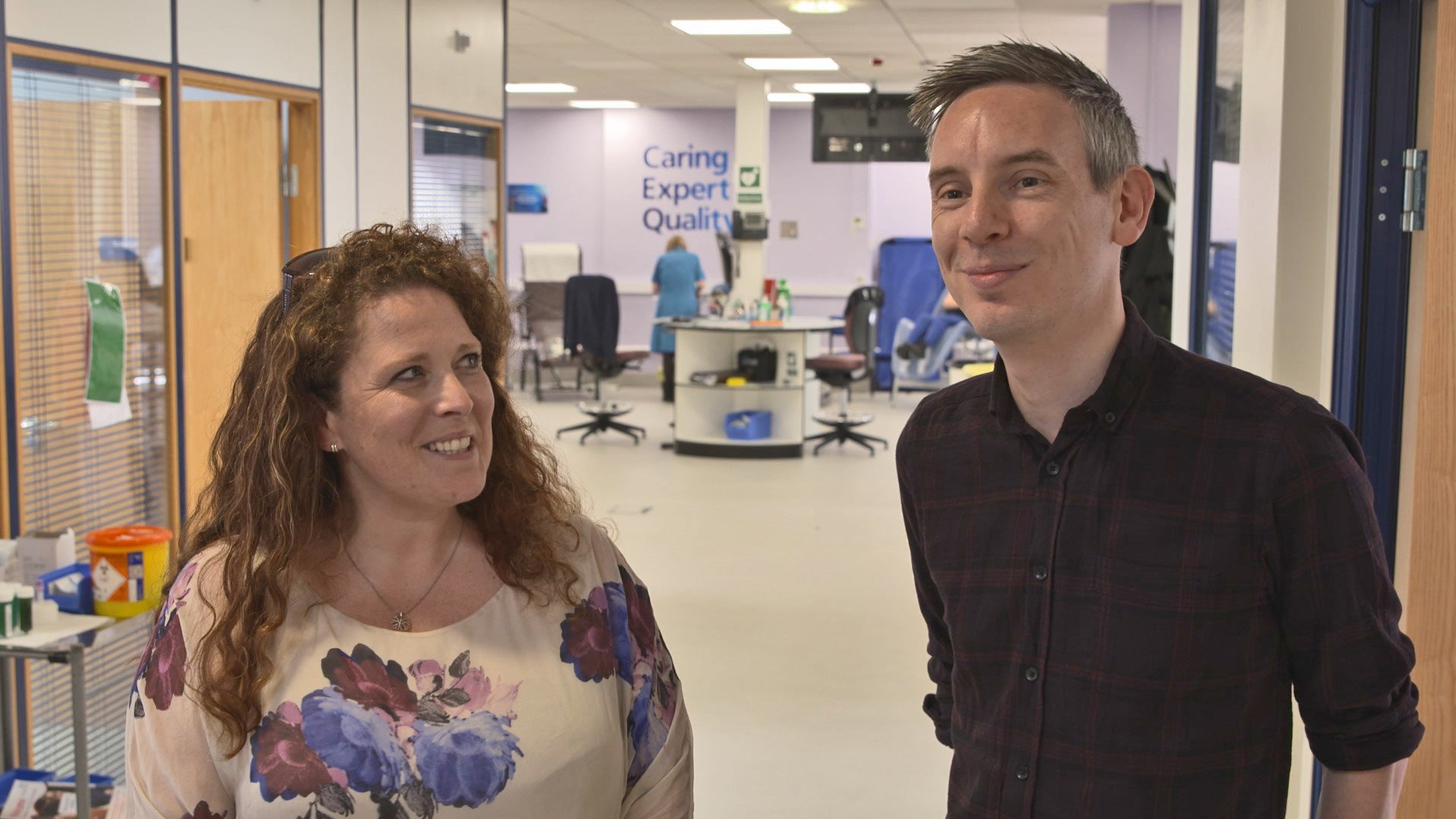Crash survivor appeals for male blood donors as numbers giving blood fall by a quarter in five years
Emily Pringle met one of the donors whose blood helped save her life after car crash that ruptured artery

Your support helps us to tell the story
From reproductive rights to climate change to Big Tech, The Independent is on the ground when the story is developing. Whether it's investigating the financials of Elon Musk's pro-Trump PAC or producing our latest documentary, 'The A Word', which shines a light on the American women fighting for reproductive rights, we know how important it is to parse out the facts from the messaging.
At such a critical moment in US history, we need reporters on the ground. Your donation allows us to keep sending journalists to speak to both sides of the story.
The Independent is trusted by Americans across the entire political spectrum. And unlike many other quality news outlets, we choose not to lock Americans out of our reporting and analysis with paywalls. We believe quality journalism should be available to everyone, paid for by those who can afford it.
Your support makes all the difference.A mother who survived a head on car crash in which she lost litres of blood is leading calls for more men to come forward as donors after numbers collapsed by a quarter.
There were 350,425 male blood donors in England in 2018-19, down 24.8 per cent from 2013-14 when the figure stood at 466,346, NHS Blood and Transplant (NHSBT) said.
Emily Pringle, from Cheltenham, suffered 27 broken bones and ruptured an artery in her neck following the A40 crash in July of last year.
The 42-year-old met donor Karl Kellner, 34, whose blood was one of five units (roughly 1.1 litres) that helped save her life, to raise awareness of the need for more male donors.
"Your blood played a major, major part in keeping me alive and I am very grateful," she told the donor, as they met for the first time at a donation centre in Birmingham.
Mr Kellner, a graphic designer, said it was an "amazing experience".
"Every time I donate now, I will be thinking in the back of my mind that this is something that will change another person's life," he added.
Twice as many women as men donated blood in England last year.

Male blood can be more suitable for creating blood products such as plasma and platelets, used for wound clotting, and men typically have higher iron levels than women.
"We need more new male donors to address this worrying long-term decline," said Mike Stredder, director of blood donation at NHSBT.
"Men are more likely to be able to donate, and able to help more patients with each donation, so we need a new generation of young male donors to ensure our donor base is strong enough to keep supplying lifesaving blood to hospitals."
He said donation clinics aim to have people in and out within an hour, and giving blood was something everyone could feel proud of.
NHSBT is appealing for new male donors near its 23 permanent centres, located in cities including London, Manchester, Cambridge, Sheffield and Leicester.
Join our commenting forum
Join thought-provoking conversations, follow other Independent readers and see their replies
0Comments